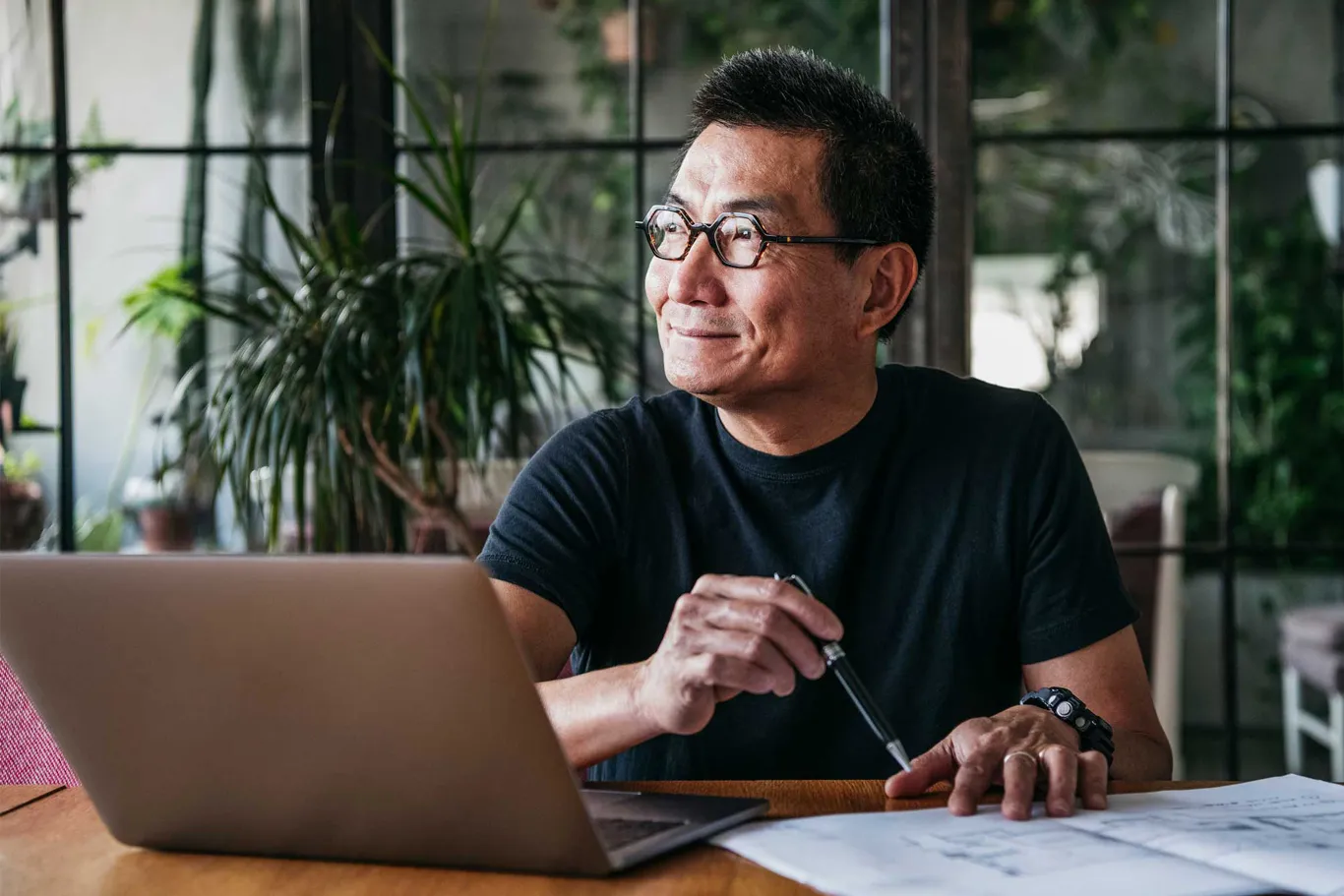With more of us expected to live to 100, we need to rethink our approach to work and retirement. Here’s how.
We are being faced with a “happy problem”. Global life expectancy across the world increased from 64.2 years in 1990 to 72.6 years in 2019 and continues to rise, according to data from the United Nations. In Singapore, says the Department of Statistics, our average life expectancy in 2018 was 83.2 years, which is among the longest in the world.
“Longevity is a wonderful achievement,” said Andrew Scott, a Professor of Economics at London Business School and co-author of the book The 100-Year Life, at a Prudential event held in Singapore in 2019. After all, humans have been on a quest for immortality throughout our history. However, “with a longer life, you need to keep looking for change and adapting, or you will get very bored,” he shares. Reinvention, it seems, is the key to that long, bright future.
Check your blind spot. Are you future-ready?
When it comes to work, many of us are not being proactive and forward-looking enough. According to a study conducted for Ready for 100 in Singapore? Preparing for Longevity report, only four in 10 of those surveyed say they actively seek new challenges, learnings and opportunities at work.
Yet, more than half of respondents expect to rely on a salary to support themselves even after the age of 62 – the current age of retirement in Singapore. This tension – between hoping to stay employable and not taking initiative to keep pace and evolve – needs to be acknowledged. To prepare well for our future, it’s time to seriously consider our ability to financially support our desired lifestyles as we live out what are supposed to be the “golden years”.
100,000 more productive hours – how will you spend them?
First, scrap the idea that life is a three-stage model of education, work and retirement in Singapore. Scott instead encourages us to imagine a “multi-stage life”. With an estimated 100,000 extra productive hours ahead of us, time will be broken up into several phases of career to store up our “tangible assets” such as wealth, home and source of income. Just as importantly is regeneration and time off to take care of our “intangible assets”. This could be building knowledge and skills, maintaining our health and vitality, and relationships – or simply enjoying a well-deserved break.
With a long runway before us, working at an unsustainable rate without a forward-looking mindset – whilst putting off non-income generating activities to our latter years – no longer makes long-term sense. We need to re-evaluate our lives, careers and even our family and legacy structures so that we can store up the resources and energy to live life to the fullest, says Scott.
Investing in your human capital
How do you want to evolve as a professional? You may be considering a career change, or working for yourself instead. Entrepreneurship or participating in the gig economy has become increasingly popular in the last decade. The latter refers to task-based work, which runs the gamut from service-based jobs to knowledge-based ones like independent management consulting or data analytics.
As for going against the grain to start a business in one’s later years, Singapore isn’t short of inspiring “elder-preneur” stories. Helen Lim, founder of social enterprise Silver Spring, started her first business at 62. Upon noticing that many older workers lost their self-esteem as they stopped working, Lim set out to empower mature job-seekers and help them find re-employment. She has since founded several other businesses targeting the same demographic.
In fact, in an inspiring (and reassuring) TED talk in 2019, esteemed mathematician and author Albert-László Barabási debunked the common notion that age defines our chances of success. In a comprehensive analysis of scientists, artists and entrepreneurs, Barabási found that success can come at any age, as long as we remain productive. In other words, we must try and try again, in order to reap the rewards of our hard work.
A lifetime of productivity takes some planning ahead. Just like investing in different assets manages risk, equipping yourself with diverse skills and experiences will help to secure your well-being in the long run. According to Scott, “With this endowment of extra time, we need to be more flexible rather than definitive – learning to be more forward-thinking is critical to longevity wellness.”
For Singaporeans, schemes like the government’s SkillsFuture initiative, which provides course credit grants to encourage lifelong learning, are great opportunities to leverage. Be sure to also keep up with technological developments and actively maintain your professional connections.
Finally, it’s up to each of us to set the ball rolling. Changing our approach to work will take a collaborative effort. Employees, companies and governments must all play a part to ensure that support structures and outdated notions are set right, so that everyone benefits from the longer ride ahead.
To learn more about the opportunities and challenges that living to 100 could bring, read our full research report.
